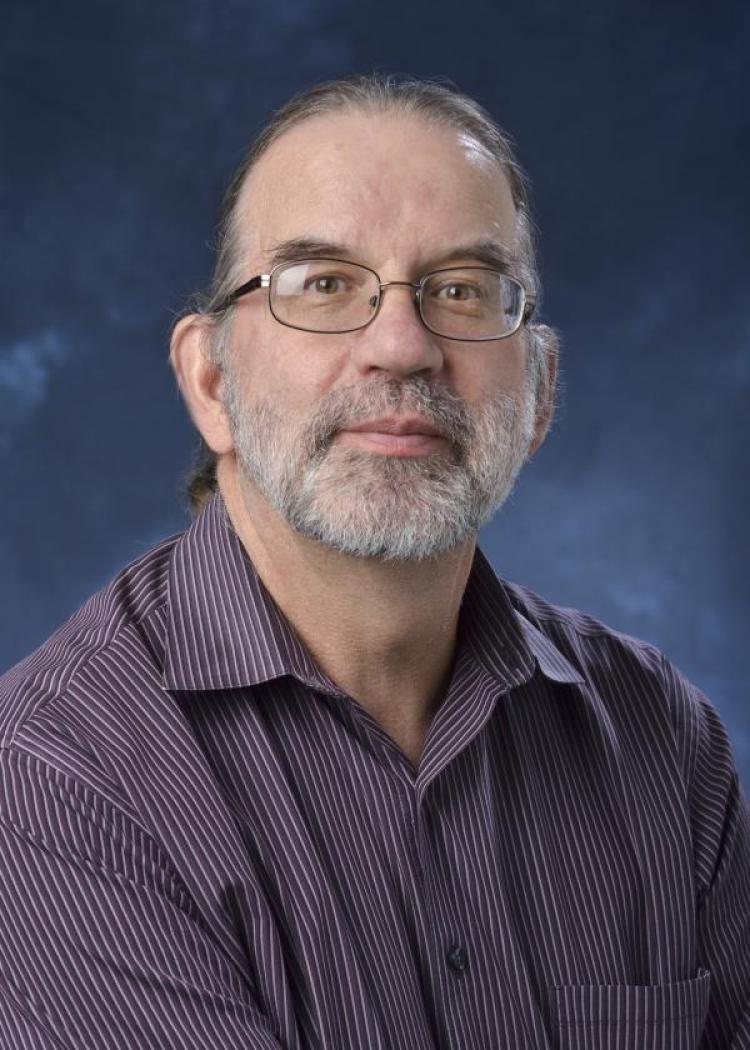NASA, NOAA, others are nation's ‘crown jewels,’ scientist says
Mark Serreze talks about being named a Distinguished Professor, how he got interested in the cryosphere, and why you should care about snow and ice
Mark Serreze wants the next generation of students to know that snow and ice are not only cool but also important. He is one of seven faculty members in the University of Colorado system to be named a Distinguished Professor this year.

Mark Serreze. (At the top of the page, he is shown in the field in Alaska.)
Today, the CU Board of Regents bestowed this honor on Serreze and three other members of the CU Boulder faculty: Carole Newlands of classics, Min Han of molecular, cellular and developmental biology, and David Korevaar of music.
Serreze earned his doctorate at CU Boulder 30 years ago; today, he is a leading authority on arctic climate.
He is a faculty member of the Department of Geography and director of the National Snow and Ice Data Center, which, under his leadership, continues to be the world’s leading source for data and information about our planet’s snow and ice.
One of the most published scientists in his field, Serreze’s work has significantly improved our understanding of the Arctic’s role in global climate.
His books include the award-winning textbook The Arctic Climate System and last year’s Brave New Arctic: The Untold Story of the Melting North, which has received critical acclaim for its impact on audiences beyond academia.
He recently fielded five questions about his research and life, and these are his answers:
As you know, the title “distinguished professor” is an honor that recognizes distinguished scholarship, excellent teaching and outstanding teaching and service; what reaction do you have to receiving this honor?
I always strive to be the best that I can be in research, teaching and service to the University of Colorado and I bleed black and gold. But to receive recognition as a distinguished professor is very unexpected.
I look at those who have preceded me and they seem so much more deserving. Simply put, I am humbled.
If you were to briefly tell an audience of high-school students why they should study the cryosphere, what would you say?
Snow and ice are cool! The cryosphere acts as the natural refrigerator of our planet, and in many parts of the world, the water that slakes our thirst and that we use for agriculture and other purposes comes from snow and ice.
Where would winter sports be without snow and ice? But it also presents hazards, ranging from avalanches to slippery roads to even ice cream headaches.
The world needs more people who know about the many facets of the cryosphere.
NSIDC is perhaps best known for tracking the Arctic sea-ice minimums each year; what would you like the general public to know about the center besides this?
The public needs to know that NSIDC has a mission: "To be the authoritative data management and science center for cryospheric data and research. We advance understanding of Earth's frozen regions and the changes taking place to inform decision making in service to humanity and Earth."
We are proud of what we do, because what we do is very important. And we are proud to pursue our mission as part of the University of Colorado.
The National Academy of Sciences has expressed concern that several factors are limiting the ability of labs like yours to attract enough talented graduate students and post-docs; is this also a concern of yours, and, if so, do you have any observations about the topic?
Our country needs to invest heavily in science. We need more science at all levels of education, from K-12 and beyond, especially in areas such as mathematics, physics, biology and chemistry.
Students who want pursue careers in science must be supported. We must provide our educators the resources that they need, and recognize, financially and in other ways, the huge responsibilities that they carry.
Students who want pursue careers in science must be supported. We must provide our educators the resources that they need, and recognize, financially and in other ways, the huge responsibilities that they carry."
Agencies like the National Science Foundation, NASA, NOAA and the National Institutes of Health that support basic research need to be viewed as crown jewels of our nation and given the full support that they need to lead us into the future.
When did you know that you would devote your career to the study of snow and ice?
While I had inklings as a child while growing up in Maine where winters were very real (I have some horror stories about things like daredevil sledding and riding ice floes down the Kennebunk River), I think that the real decision point was back in 1982, when I first visited the Arctic as a young graduate student.
It was a magical day when I stepped off that ski-equipped Twin Otter at the top of an ice cap into a world of pristine white. I knew that I had found my calling.
See more about Mark Serreze's appointment at the NSIDC site.

